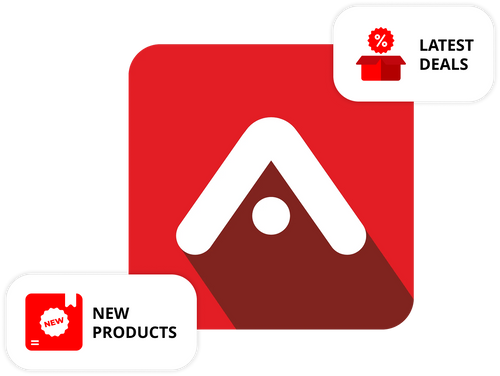
What is Inverter? Features, Benefits, and Applications.
Understanding the Basics: What is an Inverter?

An inverter is an electric device, which converts the direct current (DC) into the alternating current (AC). Since most home appliances and electrical systems rely on the AC, it is important in filling the gap when a source of power will provide for DC electricity. This generally means that DC power shall be converted to usable power in the form of AC, making it possible to have your devices, machines, and even systems all working properly.
For example, if it has a solar power setting up, the energy, say collected from sunlight, would be stored as DC in the batteries. So, to use the energy to run your appliances inside your home, there steps in the inverter for conversion to AC.
Key Features of an Inverter
Modern inverters come with various features designed to enhance efficiency, usability, and safety. Here are some of the standout features:
-
Pure Sine Wave Output
- Most quality inverters are of pure sine wave output which almost exactly replicates the type of electricity provided by the grid. This way, sensitive devices such as laptops, medical equipment, and advanced home appliances do not have any issues.
-
High Efficiency
- State-of-the-art inverters reduce energy loss during conversion so that you get all your money's worth on the power source.
-
Overload Protection
- Internal protection is built in such that it shuts down the inverter if the load exceeds its capacity.
-
Smart Display Panels
- Most inverters come with digital displays that display real-time information on battery status, load level, and input/output voltage to keep you posted on how your system is performing.
-
Eco Mode
- Eco-mode is a feature of some inverters where performance is adjusted to save battery power and maximize energy efficiency.
-
Automatic Transfer Switch (ATS)
- In the event of a power outage, inverters with ATS automatically switch to battery power without requiring any human intervention.
Benefits of Using an Inverter

Inverters offer a host of advantages that make them indispensable in both residential and commercial setups. Here are some of the key benefits:
-
Uninterrupted Power Supply
- Inverters ensure a seamless power backup during outages, keeping essential appliances like lights, fans, and refrigerators running without interruption.
-
Cost-Effective Solution
- Compared to alternatives like generators, inverters are more affordable to purchase and maintain. They also have lower operational costs since they don’t require fuel.
-
Environmentally Friendly
- Unlike generators, inverters produce no emissions, making them a cleaner, eco-friendly option for power backup.
-
Noise-Free Operation
- Inverters operate silently, providing a noise-free environment—a stark contrast to the loud hum of generators.
-
Energy Independence
- When paired with solar panels, inverters empower you to harness renewable energy, reducing reliance on the grid and lowering electricity bills.
-
Portable and Versatile
- Compact inverters are easy to carry and can be used for various applications, from powering home appliances to running tools during outdoor projects.
-
Safe for Sensitive Devices
- High-quality inverters provide stable power output, protecting sensitive electronics from damage due to fluctuations or surges.
Applications of Inverters

The versatility of inverters makes them suitable for a wide range of applications. Let’s explore their use in different scenarios:
-
Home Power Backup
- Inverters are a lifesaver during power cuts, ensuring that essential appliances like lights, fans, and Wi-Fi routers continue to function.
-
Solar Power Systems
- Solar inverters are a critical component of solar power setups. They convert the DC electricity generated by solar panels into AC power that can be used in homes or businesses.
-
Industrial Applications
- Industries use inverters for running machinery during power outages and for converting energy from renewable sources like wind or solar.
-
Recreational Use
- Inverters are popular for outdoor activities like camping and RV trips, where they provide power for lighting, cooking appliances, and gadgets.
-
Medical Equipment
- Inverters ensure an uninterrupted power supply for critical medical devices such as oxygen concentrators, CPAP machines, and monitoring equipment during outages.
-
Off-Grid Living
- For those living in remote areas with no access to the power grid, inverters paired with renewable energy sources provide a reliable electricity solution.
-
Emergency Services
- Inverters are used in ambulances, fire trucks, and other emergency vehicles to power equipment and tools on the go.
Types of Inverters

Depending on the specific use case, there are different types of inverters available:
-
Pure Sine Wave Inverters
- Ideal for sensitive devices and high-end appliances, offering smooth and stable power.
-
Modified Sine Wave Inverters
- More affordable but less efficient, suitable for basic appliances like fans and lights.
-
Grid-Tie Inverters
- Designed for solar power systems connected to the grid, these inverters synchronize with grid electricity.
-
Off-Grid Inverters
- Used in standalone systems, these inverters are perfect for remote locations.
-
Hybrid Inverters
- Combining the functionalities of off-grid and grid-tie systems, hybrid inverters are versatile and ideal for diverse applications.
Inverters are the backbone in today's energy-dependent world. It may be needed to provide continuous power to a home, harnessing renewable energy, or critical applications; inverters present a flexible, eco-friendly, and cost-effective option. You can make a better choice in selecting the right inverter for you by understanding its features, benefits, and applications.

 Request for Quotes
Request for Quotes
 Help Center
Help Center




































































